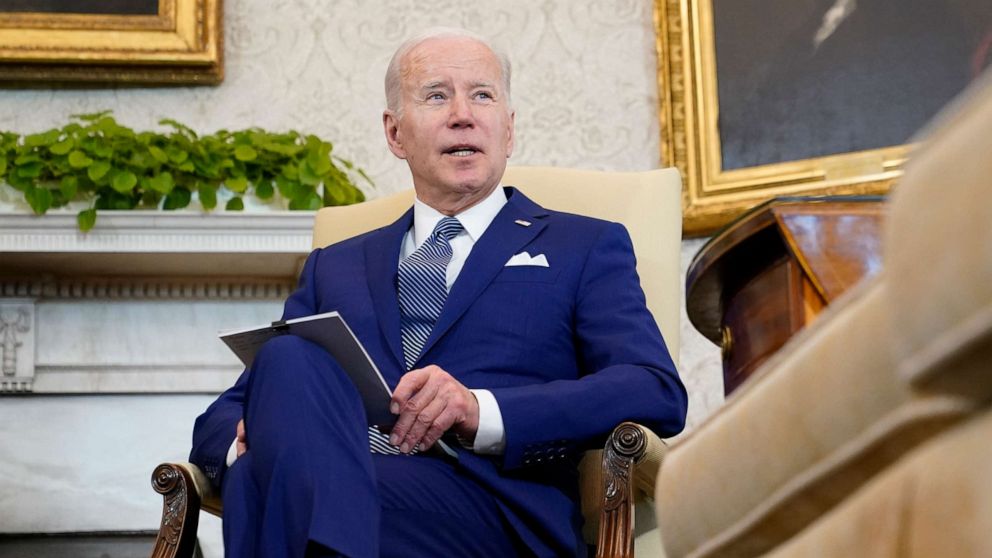He said Americans would deal “another powerful blow” to Vladimir Putin.
President Joe Biden announced Tuesday that the U.S. will ban imports of Russian oil and other energy products, but will not be joined in doing so by European allies.
The move is expected to trigger sharply higher gasoline and other energy prices in the U.S. and worldwide.
Speaking from the White House, he said it means the American people would deal “another powerful blow” to Russian President Vladimir Putin.
The decision was made in “close consultation” with U.S. allies, some of whom he said would not be “in a position” to do the same but he stressed the alliance remained united.
Biden has been under growing political pressure from both Democrats and Republicans on Capitol Hill to go forward with a ban even though the White House initially resisted, saying it wasn’t in the U.S. “strategic interest” to limit the world’s energy supply and drive up gasoline prices.
On Monday, top lawmakers announced they had come to a deal on bipartisan legislation that would punish Russia for its invasion of Ukraine, by banning the import of Russian oil and other energy products — as well as suspending normal trade relations with Russia and a House vote was expected this week.
Biden’s announcement is likely to cause gasoline prices in the U.S. — already at record highs — to soar even higher.
About 8% of U.S. imports of crude oil and petroleum products came from Russia last year, according to preliminary U.S. government data; 3% of U.S. oil came from Russia.
White House officials also say the impact on Russia, which sent just 1% of its oil exports to the U.S. in 2020, would not be great — especially when its oil and gas sector is already “de facto sanctioned” because of harsh restrictions on Russian banks.
But in an NPR/PBS NewsHour/Marist poll last week, 69% of Americans said they supported economic sanctions on Russia even if they resulted in higher energy prices in the U.S.
There is less appetite in Europe for a ban on Russian oil and gas imports, since European nations rely heavily on Russia for their energy needs — nearly half of Russian oil exports go to Europe, according to U.S. government figures — and analysts say a ban would raise Europe’s energy prices significantly.
This is a developing story. Please check back for updates.

